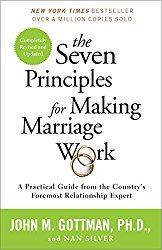In the United States before about the 1970’s, most people would get married fairly young, probably before the age of 25, or even 21. It really wasn’t that uncommon for people to be married by the age of 18, or even at 16 or 17. There were a variety of reasons for this, probably the most common was that it was the norm, followed by many people waiting for marriage before having sex. In addition, many women were expecting to become mothers and homemakers rather than pursue a career in the business world. While many women might take a secretarial job or a low-skilled job for a period to pay the bills and pass the time after high school, most were ready to get married and move on with their lives, so they would happily get married and quit their jobs at the first good opportunity.
Flash forward to today where most women are pursuing careers outside of the home (with those choosing to be fulltime parents being looked down upon by some) sex becoming something done freely without any sort of a commitment, and a large number of divorces in the last generation and we’re seeing many people waiting until their late twenties or even late thirties before getting married. Many are even choosing not to become married at all, perhaps because they are scared of divorce, or perhaps because they see no reason for it anymore. (A marriage definitely takes work to stay strong. If you’re not getting married because you’re worried about divorce or because your parent’s marriage was not healthy, check out The Seven Principles for Making Marriage Work: A Practical Guide from the Country’s Foremost Relationship Expert

While many of these never-marry or delay-marriage couples are not going to the church or to the courthouse to make things official, however, they are essentially acting as married couples for all intents and purposes. They are engaged in long-term monogamous relationships, buying homes together, acquiring pets and household items together, and supporting each other in their careers. Some are even choosing to have children together. Others are not choosing to do so, but end up having kids anyway since their bodies have a way of propagating the species despite best efforts to prevent it. Really many are in what would be considered common law marriages, which are what existed before states started to get into the business of issuing marriage licenses.
There are dangers in not getting married, however. Even if you are not religious and are not worried about committing sin, there are very good legal reasons for actually going down and tying the knot, rather than skipping that step and just enjoying the benefits without the official commitment. Among these:
1. A marriage makes it harder to leave, making it more likely you will work things out.
No one ever thinks that a relationship will end, but many do. It is particularly easy to end a relationship if all you need to do is walk out the door, rather than go through a court procedure. When couples start fighting, they really have two choices. They can push to win the fight, trying to score the most points and hurt the other the most, or they can work to find common ground, make compromises and figure out a way to resolve the dispute that both can live with. I’m convinced that few people would get divorced if they ruled it out as an option because then they would find ways to work towards a resolution rather than stirring things up and hurting their relationship. If you think that you can just leave, you might choose to do bitter, spiteful things in the name of justice and revenge. If you think that you’ll need to live with this person for the next 50 years, you’ll probably choose to make things as good as you can. Making it harder to leave will help to preserve a relationship when things get tough.

2. A marriage protects you should things end anyway.
Many people who are choosing a long-term relationship without marriage are buying homes together, putting each other on their credit cards and other accounts, and buying other things together. If you are married and things go south, there is a process in place to equitably distribute goods and assets and assign responsibility for loans and liabilities. If you are not married, while you can sue each other to try to protect yourself, there is no set process. Perhaps while you have been living together in a home you feel that you have some ownership since you’ve paid off a good portion of the mortgage. If the other person has the loan in their name, however, all you have been doing is paying rent and can be evicted with nothing. The other person could also just lock you out and keep all of the stuff you’ve bought together. You could go to a court and try to get it back, but that will be much more difficult as a single person than it would have been if you were married.
You could also be stuck with the payments for that car you bought together that is now on its last legs, (but the payments continue on) since you had your name jointly on the loan and the other person has decided to stop making payments. In a divorce the judge can remove you from loans and assign responsibility to continue the payments. Without legal protection, there may be nothing that you can do but take over the payments if you don’t want your credit score trashed.
3. Marriage protects the primary caregiver for kids.
If you have children, one person will inevitably end up as the primary caregiver, and this is most likely to be the woman. This will be devastating from an income-earning standpoint as skills are lost and promotions are missed during the decade or more spent raising the children. Even if the kids are placed in daycare at age one or two, the time lost from work during those few years will seriously reduce lifetime earnings, both because of the income lost during the time off and the promotions and opportunities missed. Because even in daycare or school kids will also have sick days, school events, and need to be picked up by 3:00 each day even when they aren’t sick, the person taking care of the children will hurt their career because they won’t be the focused, available, flexible employee that is needed for higher-level positions. The ability to travel, which is essential for many upper-management positions, will also be limited or unavailable for the primary caregiver.
If you are married and you get divorced after taking care of the kids for twelve years, making it almost impossible to take a job that pays anywhere near what you were making before taking time off to raise the kids, let alone what you would have been making if you had stayed, the courts can force your husband/wife to compensate you for the time you gave that enabled them to flourish in their career. If you are not married, you may be left with nothing, suddenly finding yourself at 45 unable to get a decent paying job despite needing to now pay for your shelter, food, and clothing all on your own.
Hey – if you like The Small Investor, help keep it going. Buy a copy of the SmallIvy Book of Investing: Book1: Investing to Grow Wealthy or just click on one of the products shown. The Small Investor will make a small commission each time you buy a product through one of our links while it will cost you nothing extra.
4. There are many other rights available to married couples.
If one of you gets sick, a wife/husband can visit in the hospital where a live-in boyfriend/girlfriend may not be admitted. If there is a death, most assets will automatically pass to the surviving spouse even if the beneficiaries are not designated due to an oversight or laziness. If there is no spouse, the assets may go to the person’s parents, siblings, or even to the state if there are no other legal heirs. If there are legal charges against a spouse, the other spouse cannot be compelled to testify. There is no such protection for a boyfriend/girlfriend. At retirement, the surviving spouse will get the higher earners’ Social Security benefits after the other spouses’ death, but not the live-in partner. While some of these protections can be put in place with legal contracts, others cannot.

Want all the details on using Investing to grow financially Independent? Try The SmallIvy Book of Investing.
While you may think that marriage is not for you, it is worth serious consideration. Even just having a sexual relationship with another person outside of a marriage exposes you to the risk of having to raise a child alone with the extreme impact that has on your options in life. At the very least, you may end up raising a child with someone you cannot stand. If you start to do other things together like buy homes and assets, let alone make sacrifices to advance the others’ career, you can really find yourself at a disadvantage later if the other person decides to leave. You also give up many of the legal protections and rights you would have had as a married person if you don’t make things official. It may seem old-fashioned to get married, but it is definitely something that you should seriously consider if you want to have a long-term relationship with another person.
Have a burning investing question you’d like answered? Please send to [email protected] or leave in a comment.
Follow on Twitter to get news about new articles. @SmallIvy_SI
Disclaimer: This blog is not meant to give financial planning or tax advice. It gives general information on investment strategy, picking stocks, and generally managing money to build wealth. It is not a solicitation to buy or sell stocks or any security. Financial planning advice should be sought from a certified financial planner, which the author is not. Tax advice should be sought from a CPA. All investments involve risk and the reader as urged to consider risks carefully and seek the advice of experts if needed before investing.
